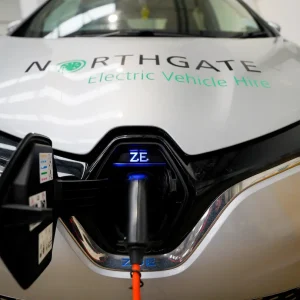Anyone who attended the 21st Institute of Car Fleet Management Annual National Members’ Conference, hosted by Jaguar Land Rover at the Heritage Motor Centre, Gaydon, cannot help but have been left inspired.
Its theme was leadership in fleet management, and following opening presentations by the event’s main sponsors, the day kicked off with a morning panel session about leading technology, which involved panellists who were prepared to be sometimes provocative in their viewpoints on how to meet the challenges of the future.
Bob Holbrey, group IT director at incident management specialists FMG, was firmly of the opinion that half of the £42.6bn HS2 budget would be better invested in delivering super high-speed broadband to every household in the country and that we need to re-evaluate how we approach the world of work to reduce travel.
Meanwhile, Olly Macé, head of global strategy and external affairs for BP Biofuels, spoke about the firm investigating alternative fuels. Isobutanol appears to be the latest hope as it can be developed from extractions from any plants, rather than specific plants such as oil seed rape.
Darren Lindsey, head of Government and public affairs at Michelin, observed that the Office for National Statistics predicts a UK population rise of 9.6 million within 25 years due to immigration and people living longer, raising the spectre of worsening road congestion. And technological advances are not confined to fuels: EVs need different tyre profiles and contact patches to optimise rolling resistance.
Martin Evans, MD of Jaama, talked about how fleet software can advance the role of fleet management, while Mike Bell, global connected car director at Jaguar Land Rover, outlined in detail how every Jaguar is to be fitted with a SIM card relaying telematics on everything to do with the car, from the obvious to the not so obvious.
As the morning session concluded, all agreed that a lack of a central integrated transport strategy was a vision clearly lacking in this country.
England’s most capped cricketer, Alec Stewart OBE, spoke after lunch. He always wanted to be a professional footballer, but when that dream seemed out of reach he set about realising his other one of representing England at cricket. He talked about the current strategy designed to take England back to the top of the game. Teamwork, resilience and character were identified as critical to making that final step from number two to being the best country in the game.
Adrian Moorhouse MBE, the 100m breaststroke gold medal winner at the 1988 Seoul Olympics, followed with an illuminating talk on ‘Leadership in Learning and Development’. At the 1984 Olympics he was favourite but finished fourth, and was described in one headline as a total failure who should retire.
On the verge of quitting, it took a sports psychologist to restore his confidence in his own ability, pointing out that if he had been beaten by someone from the US, Canada and Australia, he must be the European champion.
From that foundation he built a programme that saw him become the first ever to swim a 100m breaststroke in under one minute, win his sought-after gold medal and be the world’s number one breaststroke swimmer until 1991.
Now the MD of Lane4, a leader in the field of human performance, he reminded the audience that we all have potential and it’s just a question of unlocking it by reminding ourselves what we are good at.





